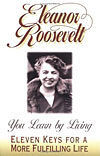
You Learn by Living
By Eleanor Roosevelt
This is basically a collection of advice Roosevelt gave to people who wrote to her after she left the White House. Some of her comments are a little out of date—it was written in 1960—but what she writes about fear and courage apply as much to life today as when the book was published: "We do not have to become heroes overnight. Just a step at a time, meeting each thing that comes up…discovering we have the strength to stare it down." I order 15 copies at a time and dole them out to friends who are going through a rough patch. A book like this reminds you that real greatness is not something people are entitled to—it's something that's earned.
By Eleanor Roosevelt
This is basically a collection of advice Roosevelt gave to people who wrote to her after she left the White House. Some of her comments are a little out of date—it was written in 1960—but what she writes about fear and courage apply as much to life today as when the book was published: "We do not have to become heroes overnight. Just a step at a time, meeting each thing that comes up…discovering we have the strength to stare it down." I order 15 copies at a time and dole them out to friends who are going through a rough patch. A book like this reminds you that real greatness is not something people are entitled to—it's something that's earned.
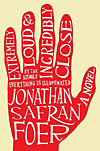
Extremely Loud & Incredibly Close
By Jonathan Safran Foer
Foer's second novel, after Everything Is Illuminated, is about a boy whose father died on 9/11 and who has just found a strange key. He sets out to figure out where it fits and what's going on. You join him on the search, which includes finding out more about his father and about his own identity. Some of the hints you're given are visual; there are blank pages and photographs, for instance. And these page breaks and images force you to think in a different way. You find that you're on an adventure, going into a realm of thought and texture and feeling and emotion that is very specific to this boy. Your senses will be awakened.
By Jonathan Safran Foer
Foer's second novel, after Everything Is Illuminated, is about a boy whose father died on 9/11 and who has just found a strange key. He sets out to figure out where it fits and what's going on. You join him on the search, which includes finding out more about his father and about his own identity. Some of the hints you're given are visual; there are blank pages and photographs, for instance. And these page breaks and images force you to think in a different way. You find that you're on an adventure, going into a realm of thought and texture and feeling and emotion that is very specific to this boy. Your senses will be awakened.
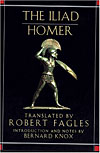
The Iliad
By Homer
I wasn't a big reader growing up, but something clicked with The Iliad. It's a war story told in 24 chapters of poetry. Some people are intimidated by the book's reputation, but its language cues you emotionally and intellectually. The rhythm of it helps you absorb the material—the alliteration, the onomatopoeia, the way certain words are set against each other. I remember the way daybreak is described: "Now as the Dawn flung out her golden robe across the earth." Gorgeous.
By Homer
I wasn't a big reader growing up, but something clicked with The Iliad. It's a war story told in 24 chapters of poetry. Some people are intimidated by the book's reputation, but its language cues you emotionally and intellectually. The rhythm of it helps you absorb the material—the alliteration, the onomatopoeia, the way certain words are set against each other. I remember the way daybreak is described: "Now as the Dawn flung out her golden robe across the earth." Gorgeous.
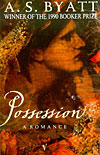
Possession
By A.S. Byatt
This is one of those books where the first 100 pages are a little tough but then it goes like a freight train. It's a mystery, told in alternating stories: The first follows two academics who are trying to discover whether a pair of 19th-century poets had a love affair; the second is what actually happened between the poets. As the modern-day scholars look through letters and historical documents, you see how the poets' relationship affects them. The book tackles questions like "Are people really all that different from era to era? How much do we really know of what came before—even if we have letters and other remnants of the past? How do you weigh the importance of what people say with how they say it? What is art used for?" I love books that force me to move a little outside my comfort zone, and this one was deeply satisfying.
By A.S. Byatt
This is one of those books where the first 100 pages are a little tough but then it goes like a freight train. It's a mystery, told in alternating stories: The first follows two academics who are trying to discover whether a pair of 19th-century poets had a love affair; the second is what actually happened between the poets. As the modern-day scholars look through letters and historical documents, you see how the poets' relationship affects them. The book tackles questions like "Are people really all that different from era to era? How much do we really know of what came before—even if we have letters and other remnants of the past? How do you weigh the importance of what people say with how they say it? What is art used for?" I love books that force me to move a little outside my comfort zone, and this one was deeply satisfying.
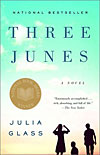
The Junes
By Julia Glass
One of the most soulful books I've read, it's another story that deals with the passage of time—in this case, in the lives of a Scottish bookseller in New York and his father and siblings in Europe. You see the family from three perspectives; the story traces their disappointments, love, challenges, their health and their illnesses—what happens to people over a lifetime and how one generation leaves its imprint on the next.
By Julia Glass
One of the most soulful books I've read, it's another story that deals with the passage of time—in this case, in the lives of a Scottish bookseller in New York and his father and siblings in Europe. You see the family from three perspectives; the story traces their disappointments, love, challenges, their health and their illnesses—what happens to people over a lifetime and how one generation leaves its imprint on the next.




